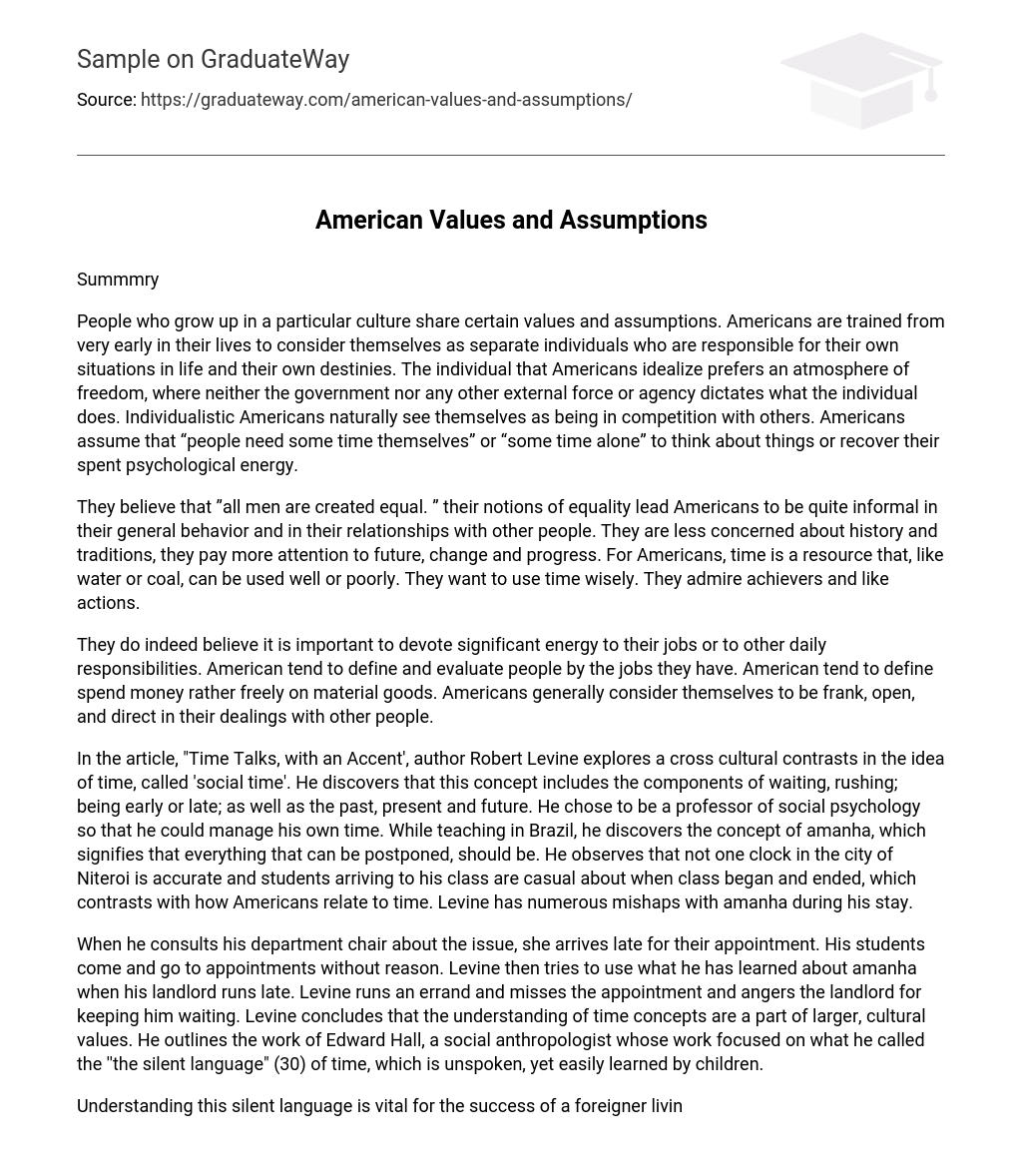Summmry
People who grow up in a particular culture share certain values and assumptions. Americans are trained from very early in their lives to consider themselves as separate individuals who are responsible for their own situations in life and their own destinies. The individual that Americans idealize prefers an atmosphere of freedom, where neither the government nor any other external force or agency dictates what the individual does. Individualistic Americans naturally see themselves as being in competition with others. Americans assume that “people need some time themselves” or “some time alone” to think about things or recover their spent psychological energy.
They believe that ”all men are created equal. ” their notions of equality lead Americans to be quite informal in their general behavior and in their relationships with other people. They are less concerned about history and traditions, they pay more attention to future, change and progress. For Americans, time is a resource that, like water or coal, can be used well or poorly. They want to use time wisely. They admire achievers and like actions.
They do indeed believe it is important to devote significant energy to their jobs or to other daily responsibilities. American tend to define and evaluate people by the jobs they have. American tend to define spend money rather freely on material goods. Americans generally consider themselves to be frank, open, and direct in their dealings with other people.
In the article, “Time Talks, with an Accent’, author Robert Levine explores a cross cultural contrasts in the idea of time, called ‘social time’. He discovers that this concept includes the components of waiting, rushing; being early or late; as well as the past, present and future. He chose to be a professor of social psychology so that he could manage his own time. While teaching in Brazil, he discovers the concept of amanha, which signifies that everything that can be postponed, should be. He observes that not one clock in the city of Niteroi is accurate and students arriving to his class are casual about when class began and ended, which contrasts with how Americans relate to time. Levine has numerous mishaps with amanha during his stay.
When he consults his department chair about the issue, she arrives late for their appointment. His students come and go to appointments without reason. Levine then tries to use what he has learned about amanha when his landlord runs late. Levine runs an errand and misses the appointment and angers the landlord for keeping him waiting. Levine concludes that the understanding of time concepts are a part of larger, cultural values. He outlines the work of Edward Hall, a social anthropologist whose work focused on what he called the ”the silent language” (30) of time, which is unspoken, yet easily learned by children.
Understanding this silent language is vital for the success of a foreigner living abroad. Since his time in Brazil, Levine has focused on the concept of punctuality and its effects on the health of people and society. He has found great diversity in the concept of time, among cultures and within countries. In my opinion, in different people’s eyes, time means different things, the differences culture lead to the different understanding of time. We can’t justify which is right or wrong, we should respect everyone’s idea of time.





